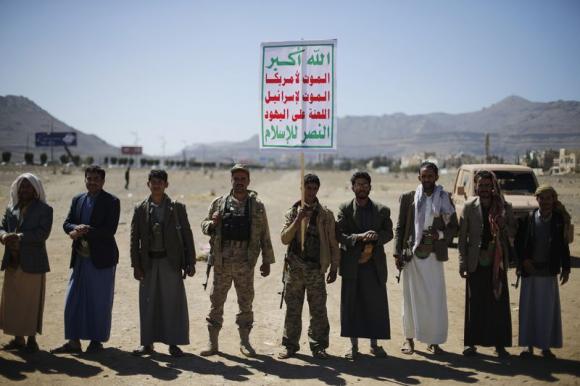
Speaking to reporters on a visit to Riyadh, Blinken called for all political parties to commit to what he called a consensus political solution, and said Washington was stepping up intelligence sharing with the anti-Houthi alliance.
“Saudi Arabia is sending a strong message to the Houthis and their allies that they cannot overrun Yemen by force,” he said, referring to Riyadh’s leadership of a military campaign by several Arab states to prevent the Houthis from seizing Yemen.
“As part of that effort, we have expedited weapons deliveries, we have increased our intelligence sharing, and we have established a joint coordination planning cell in the Saudi operation centre.”
At the Pentagon in Washington, spokesman Colonel Steve Warren said the United States was looking to deliver munitions to its allies, including by accelerating pre-existing orders.
“It’s a combination of pre-existing orders made by our partner nations and some new requirements as they expend munitions,” Warren said, asked about Blinken’s remarks.
The United States has about a dozen personnel working in the joint coordination planning cell.
Warplanes from Saudi Arabia and Arab allies have been striking Shi’ite Muslim rebels fighting to oust U.S.-allied Yemeni President Abd-Rabbu Mansour Hadi, in an attempt by the regional heavyweight to check Iranian influence in its backyard.
Sunni-ruled Gulf states aim to use military pressure to push the Houthis to resume a U.N.-backed political transition led by Hadi that was interrupted by the group’s seizure of the Yemen capital Sanaa in September.
Their takeover angered Riyadh, which sees the once obscure Zaydi Shi’ite group from the northern highlands as terrorists.
Reuters

Leave a Reply
You must be logged in to post a comment.